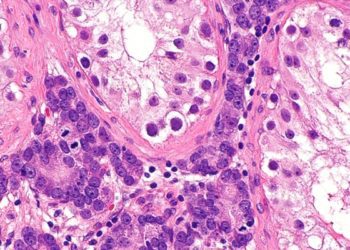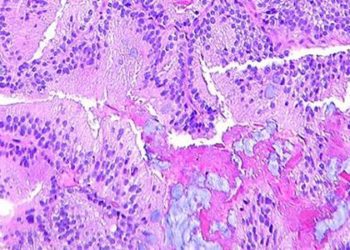Quick Take: Image-guided Irreversible Electroporation of Localized Prostate Cancer: Functional and Oncologic Outcomes
There is a need for focal therapies for low to intermediate-risk prostate cancers, as whole-gland therapies have many complications without necessarily providing a survival benefit. Irreversible electroporation (IRE), a nonthermal ablative method based on forming nanoscale defects in cell membranes, has been proposed as a possible treatment. In this cohort study, investigators conducted IRE on 30 men with prostate cancer in order to study the effect of IRE on treating prostate cancer as well as adverse effects. The patients in this study had an average PSA level of 8.65 ng/mL and a mean tumor size of 13.5 mm before treatment. After treatment, investigators found that the PSA level decreased to 2.35 ng/mL on average (IQR 1 to 3.4 ng/mL) at 12 months (p<0.001). The rate of treatment failure was 17.9% at 6 months as found through posttreatment biopsy. In terms of adverse events, leak-free and pad-free continence rate was 90% at baseline and 86.2% at 12 months (p>0.99), while the proportion of men with erection sufficient for penetration was 83.3% at baseline and 79.3% at 12 months (p>0.99). The results from this study indicate that IRE was associated with low urogenital risks and provided some efficacy for treating prostate cancer, although the 17.9% treatment failure rate requires workup. This study was limited in its small sample size and large attrition for follow up.
Click to read the study in Radiology
Image: PD
©2019 2 Minute Medicine, Inc. All rights reserved. No works may be reproduced without expressed written consent from 2 Minute Medicine, Inc. Inquire about licensing here. No article should be construed as medical advice and is not intended as such by the authors or by 2 Minute Medicine, Inc.




![2 Minute Medicine: Pharma Roundup: Price Hikes, Breakthrough Approvals, Legal Showdowns, Biotech Expansion, and Europe’s Pricing Debate [May 12nd, 2025]](https://www.2minutemedicine.com/wp-content/uploads/2025/05/ChatGPT-Image-May-12-2025-at-10_22_23-AM-350x250.png)




